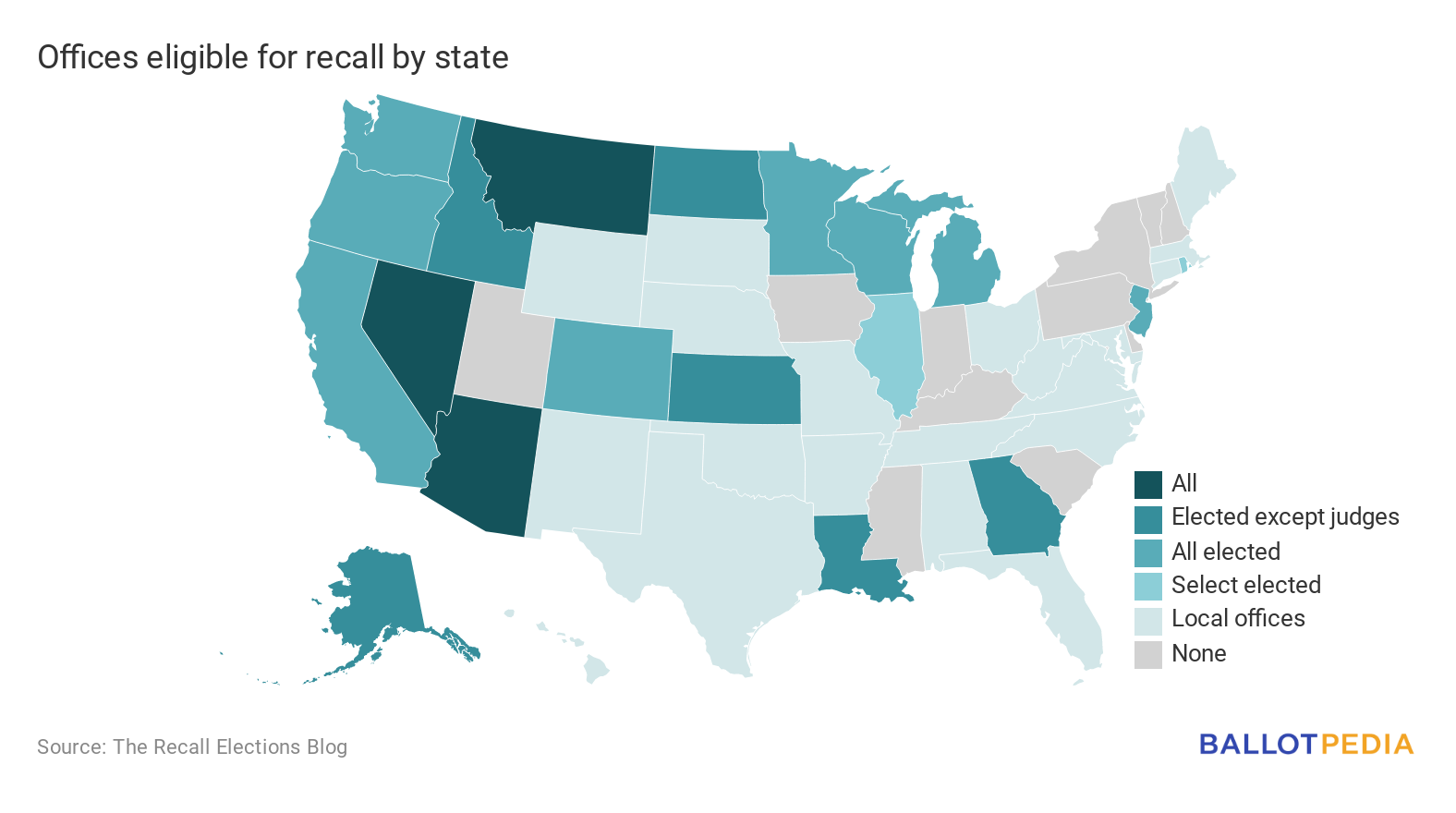How do recalls work in each state?
Since 2012, Ballotpedia has tracked over 1,500 recall efforts against elected officials. States are often called the laboratories of democracy, and that’s no different when it comes to the various processes nationwide around recalls. Here’s an overview:
Citizens can use the recall process to remove elected officials from office before their term is over in certain states. This process typically involves the circulation of petitions by recall organizers, the evaluation of signatures by election officials, and a public vote if the petitions contain a sufficient number of valid signatures.
Thirty-nine states allow citizens to recall local elected officials, and 19 states permit the recall of state officials. Of those 19 states, citizens in 10 of them can recall any state-level elected official. Seven states only allow citizens to recall state executives and legislators, but not appellate judges. Rhode Island only permits the recall of state executives and Illinois only permits the recall of the governor.

Recalls in Virginia take the form of petitions to the state’s circuit courts. Virginia laws state that local officials can be recalled, but it is unclear whether a state official can be recalled. There is no precedent for a state legislator or governor in Virginia having been recalled. Virginia is the only state not to use elections for its recall process; instead, it sends recall petitions to the state Circuit Courts for trial. One recent example of this is the 2017 recall campaign against Petersburg Mayor Samuel Parham and City Councilman W. Howard Myers. Petitions were filed against the two and Judge Joseph M. Teefey heard the recall case on February 6, 2017. However, Teefey dismissed the petitions against Parham and Myers after organizers agreed to withdraw the effort.
Eleven states—Delaware, Indiana, Iowa, Kentucky, Mississippi, New Hampshire, New York, Pennsylvania, South Carolina, Utah, and Vermont—do not permit the recall of elected officials.
Twice a year, we publish aggregate data on the status of recalls. During the first half of 2019, Ballotpedia covered a total of 72 recall efforts against 115 elected officials. Keep an eye out for our year-end report—summarizing recalls by state and office—that will be published later in December.
|